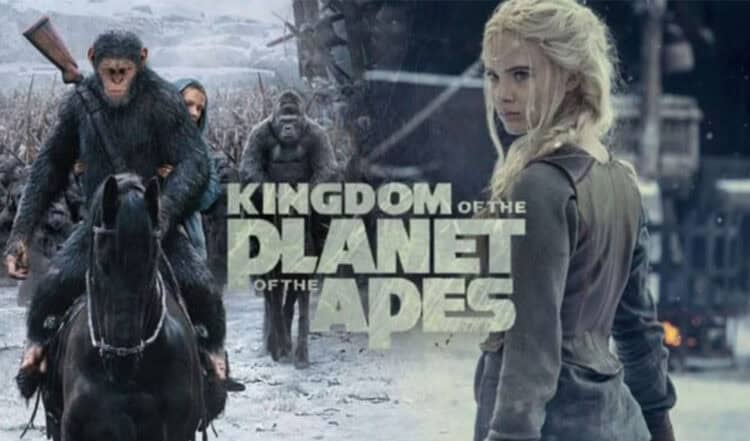Kingdom of the planet of the apes is the next film in the series where humans drop down the food chain, and find the apes hold a grudge!
The original 1968 film adaptation of Pierre Boulle’s 1963 book La Planète des singes (also known as Planet of the Apes or Monkey Planet) was a critical and mainstream success.
The original film was directed by Franklin J. Schaffner and starred Charlton Heston.
It was followed by several sequels, a reboot series, and a television series.
The iconic image (spoiler alert) of the Statue of Liberty uncovered by the beach, is etched on the minds of many people.
It sparked a wave of follow-ups, spinoff shows and merch, loads of merch.
Kingdom of the planet of the apes
The film will hit the big screen on May 24, 2024, however that could change.
Kingdom of the Planet of the Apes is also likely to be made available for streaming on Disney+, in light of Disney’s acquisition of Fox.
Again there has been no confirmation as yet.
Trailer?
There is no official trailer yet, but expect angry apes!
The new instalment is directed by Wes Ball (The Maze Runner)
The screenplay is by Josh Friedman, Rick Jaffa, Amanda Silver, and Patrick Aison. T.
The film is produced by Jaffa, Silver, Joe Hartwick Jr., and Jason Reed, with Peter Chernin and Jenno Topping are the executive producers.
Gyula Pados is the cinematographer and Dan Zimmerman heads up the editing.
Timeline of film series – Spoilers alert!
Here is an overview of the key films in the franchise…
“Planet of the Apes” (1968): The original film is set in a future where astronauts crash-land on a planet ruled by intelligent apes, while humans are primitive and mute. The film explores themes of societal control, evolution, and prejudice.
“Beneath the Planet of the Apes” (1970): This sequel follows a new astronaut who arrives on the planet and discovers an underground society of mutated humans who worship a doomsday bomb. Charlton Heston returns in a limited role.
“Escape from the Planet of the Apes” (1971): In this film, three intelligent apes, including Cornelius and Zira, escape the destruction of Earth and travel back in time to 1970s Los Angeles, where they become celebrities.
“Conquest of the Planet of the Apes” (1972): Set in a dystopian future, this film explores the rise of the apes as they rebel against their human oppressors and seek equality.
“Battle for the Planet of the Apes” (1973): The final film in the original series depicts a post-apocalyptic world and the ongoing struggle between apes and humans for control of the planet.
After the original film series, there was a TV series called “Planet of the Apes” (1974) and an animated series called “Return to the Planet of the Apes” (1975).
In 2001, there was a remake of the original film directed by Tim Burton, also titled “Planet of the Apes,” starring Mark Wahlberg.
Reboots
However, the most significant reboot of the franchise came in 2011 with “Rise of the Planet of the Apes.” This film, directed by Rupert Wyatt, marked the beginning of a new series that used advanced CGI technology to bring the apes to life, with Andy Serkis portraying Caesar, the central ape character. This reboot series included the following films:
“Rise of the Planet of the Apes” (2011): This film explores the origins of the intelligent apes and the role of scientific experimentation in their evolution.
“Dawn of the Planet of the Apes” (2014): Set years after the events of the first film, this installment focuses on the growing conflict between humans and apes as they vie for control of Earth.
“War for the Planet of the Apes” (2017): The final film in the reboot trilogy sees Caesar leading the apes in a battle against a ruthless human military leader.
These films in the reboot series received critical acclaim for their storytelling, character development, and visual effects. They provided a fresh take on the classic franchise while exploring themes of humanity, morality, and the consequences of our actions on the world around us.







